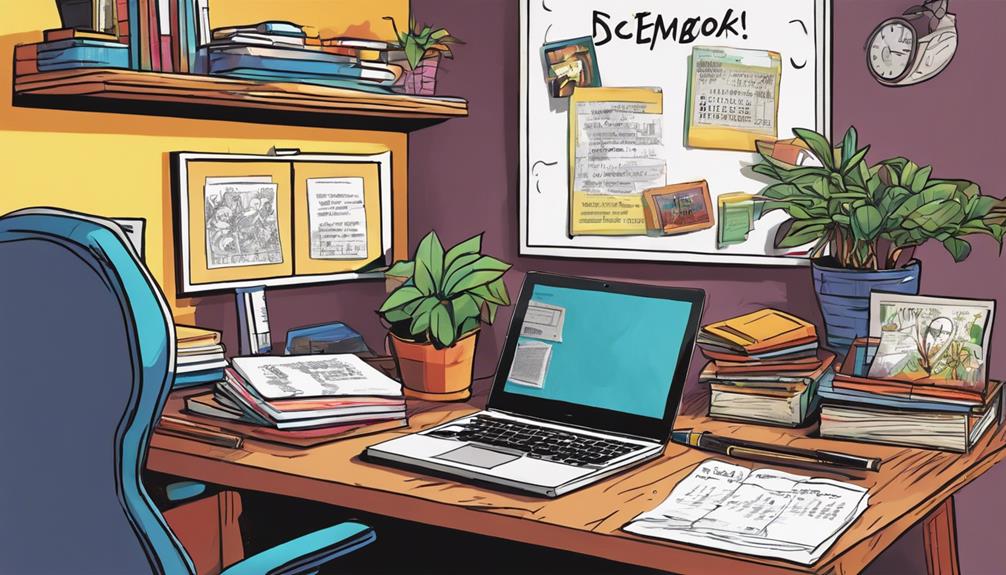Clear talk is key for fixing relationship problems and growing emotional bonds. By **noticing each other’s** special ways of speaking, a safe zone for open and loving chats can be made. Using **”I” statements and listening actively** cuts down on mix-ups and stress. Tackling issues head-on, instead of dodging hard talks, helps us feel heard and valued. Empathy and being honest build trust and closeness. **Dealing with conflicts calmly** with clear talk, turns problems into chances to grow. Focusing on these skills sets up a **stronger and happier** relationship. Dive in to discover ways to make this work.
Key Takeaways
- Open and honest communication builds trust and prevents misunderstandings.
- Using 'I' statements reduces defensiveness and promotes constructive dialogue.
- Active listening fosters empathy and deeper emotional connections.
- Resolving conflicts peacefully strengthens the bond and relationship satisfaction.
- Seeking professional help can guide couples towards healthier communication patterns.
Understanding Communication Styles

How can understanding different communication styles improve our interactions with our partners? When we recognize that everyone has unique ways of expressing themselves, it opens the door to more effective communication. By understanding our own communication style, whether it's assertive, aggressive, passive, or passive-aggressive, we can identify areas for improvement and communicate more clearly with our partners.
Respecting our partner's communication style is equally important. It allows us to approach conversations with empathy and patience, reducing the likelihood of misunderstandings. For instance, if our partner tends to be more passive, we can adapt by creating a safe space for them to share their thoughts without feeling overwhelmed. On the other hand, if they're more assertive, we can match their directness to make sure our conversations are productive and respectful.
Effective communication isn't just about speaking; it's about listening and adjusting to meet our partner's needs and preferences. When we make the effort to understand and respect each other's communication styles, we're not just talking – we're connecting.
This mutual understanding fosters a deeper bond, helping us navigate through any challenges with grace and compassion. So, let's aim to adapt and communicate with love and respect.
Common Communication Breakdowns

Despite our best efforts to understand and respect each other's communication styles, common breakdowns can still occur, leading to frustration and disconnect. Misunderstandings often arise when we assume our partner knows what we're thinking or feeling, which can snowball into misinterpretations and conflicts.
When we avoid difficult conversations, it doesn't make the issues disappear; instead, it creates unspoken tension that can slowly erode our relationship.
Emotional overload is another key factor in communication breakdowns. When we're overwhelmed, rational communication becomes challenging, and minor disagreements can escalate into significant conflicts. Misreading non-verbal cues, like facial expressions or body language, often results in misconceptions about our partner's feelings or intentions. This miscommunication can make us feel misunderstood and disconnected.
Moreover, differences in our communication styles can exacerbate these issues. One partner might prefer direct and straightforward conversations, while the other might lean towards a more indirect approach, leading to feelings of being unheard or undervalued.
Recognizing these common pitfalls can help us navigate our relationship with greater empathy and understanding, fostering a stronger connection despite the inevitable challenges.
Benefits of Effective Communication

When we communicate effectively, we build trust together, enhancing our emotional connection and bringing us closer as partners.
This open dialogue allows us to resolve conflicts peacefully, ensuring that misunderstandings don't erode our relationship.
Building Trust Together
Effective communication builds trust in relationships by fostering transparency, honesty, and mutual understanding between partners. When we engage in open communication, we create a safe space where we can express our feelings and needs without fear of judgment.
This openness helps us understand each other better, laying the foundation for a healthy relationship. By discussing our feelings and needs openly, we not only address any existing trust issues but also prevent new ones from arising.
When we communicate clearly and honestly, we show our partners that we value their thoughts and emotions, which in turn strengthens our bond. Trust is essential for any relationship to flourish, and effective communication is the key to establishing and maintaining that trust.
Moreover, rebuilding broken trust becomes possible through consistent and transparent communication. When we tackle challenges together, openly discussing what went wrong and how we can improve, we create a more resilient partnership.
This collaborative effort ensures that we address misunderstandings and missteps in a constructive manner. Ultimately, by practicing effective communication, we're not just overcoming challenges; we're building a solid foundation of trust that supports a fulfilling and lasting partnership.
Let's commit to this journey together, fostering a relationship where trust and open communication thrive.
Enhancing Emotional Connection
By fostering open and honest dialogue, we can deepen our emotional connection and enhance our relationship. When we communicate openly, we create a space where trust and intimacy can flourish. This kind of communication helps us feel more satisfied and closer to each other, laying a solid foundation for a successful partnership.
Vital listening plays a significant role in this process. By truly hearing and understanding our partner's words, we show that their thoughts and feelings matter. Expressing emotions candidly allows us to share our inner world, making our bond stronger. When we openly discuss our needs, we pave the way for mutual understanding and cooperation.
Empathy is another key benefit of effective communication. By putting ourselves in our partner's shoes, we can better appreciate their perspective, which fosters a sense of support and connection. This empathy not only makes us feel valued but also encourages us to be more supportive of each other.
Resolving Conflicts Peacefully
Handling conflicts with clear communication can transform disagreements into opportunities for growth and understanding. When we engage in open and honest communication, we establish a foundation for resolving conflicts peacefully. By using effective communication strategies, like active listening and 'I' statements, we can guarantee that our partner feels heard and understood, which naturally fosters empathy in conflict resolution.
Active listening involves truly paying attention to what our partner is saying without interrupting, showing that we value their perspective. This approach not only reduces stress and tension but also leads to healthier conflict resolution.
When we express our feelings using 'I' statements, such as 'I feel hurt when…' instead of blaming, we minimize defensiveness and encourage a more constructive dialogue.
Empathy in conflict resolution helps us see the situation from our partner's viewpoint, making it easier to find common ground. Research consistently shows that couples practicing these techniques experience greater relationship satisfaction and intimacy.
Ultimately, by resolving conflicts peacefully and communicating effectively, we strengthen the bond between us, ensuring our relationship is more resilient and harmonious. Let's embrace these strategies to build a more connected and understanding partnership.
Techniques to Enhance Communication

We can greatly enhance our relationships by adopting a few key communication techniques. Good communication starts with using 'I' statements, which help us express our own thoughts and emotions without placing blame. This approach encourages our partners to be more open and less defensive, fostering a healthier dialogue.
Vital listening is another essential technique. When we truly listen to understand our partner's perspective, we create a space for genuine connection and empathy. This involves not just hearing the words, but also comprehending the emotions behind them. By practicing empathy, we can deepen our emotional connection, leading to greater relationship satisfaction.
Face-to-face interactions are essential in building and maintaining intimacy. In our digital age, it's easy to rely on technology, but nothing beats the power of direct eye contact and physical presence. Regularly checking in with our partners to share feelings, concerns, and feedback can further strengthen our bond and promote mutual growth.
Avoiding Negative Patterns

Recognizing and addressing negative communication patterns like criticism, defensiveness, stonewalling, and contempt is essential for maintaining a healthy relationship. These negative patterns can have a profound negative impact on our trust, intimacy, and overall emotional connection. When we allow these behaviors to persist, it becomes challenging to communicate effectively and connect deeply with our partners.
Breaking these harmful cycles requires self-awareness and a genuine willingness to change. We can start by practicing positive communication strategies such as active listening, using 'I' statements, and showing empathy. These methods help us express our feelings without blaming or attacking our partner, fostering a more supportive and understanding environment.
Here's a quick overview of common negative patterns and their positive alternatives:
| Negative Pattern | Negative Impact | Positive Alternative |
|---|---|---|
| Criticism | Erodes trust | Use 'I' statements |
| Defensiveness | Blocks intimacy | Practice empathy |
| Stonewalling | Creates distance | Active listening |
| Contempt | Destroys respect | Show appreciation |
Seeking Professional Help

Seeking professional help, like couples therapy, can be a transformative step in addressing communication challenges in relationships. When we face difficulties in understanding each other, a trained therapist can guide us toward healthier communication patterns and help us become more resilient in the face of conflicts.
Through couples therapy, we can identify the underlying issues that might be causing friction and learn effective communication skills to express our needs and concerns.
Therapists create a safe space for open dialogue, allowing us to discuss our feelings and perspectives without fear of judgment. This environment fosters understanding and empathy, essential elements for overcoming relationship challenges.
By seeking professional help, we can develop strategies to engage in constructive conflicts, turning disagreements into opportunities for growth rather than sources of stress.
Moreover, couples therapy helps us break negative communication cycles and replace them with positive interactions. As we work together with a professional, we can strengthen our bond and build a more resilient relationship.
If we're struggling to navigate our issues alone, seeking professional help can be the key to opening a more harmonious and fulfilling partnership. Don't hesitate to take this courageous step toward better communication and a stronger relationship.
Frequently Asked Questions
How to Solve Communication Problems With Your Partner?
To solve communication problems with our partners, we should practice active listening to truly understand each other's feelings.
Using 'I' statements helps express our thoughts without blaming.
If issues persist, seeking couples therapy can provide additional support.
Let's create a safe space for honest talks, addressing misunderstandings calmly.
Prioritizing clear, respectful communication will build trust and intimacy, strengthening our connection.
How to Communicate With a Difficult Partner?
When we communicate with a difficult partner, we need to practice active listening, showing empathy for their perspective.
Using 'I' statements helps express our feelings without blame.
Let's try to understand the reasons behind their behavior, communicating with patience.
Address specific actions causing issues through honest conversation.
If needed, couples therapy can be a valuable tool to improve communication and navigate these challenges together.
How to Effectively Approach Your Partner About Relationship Issues?
When we need to approach our partner about relationship issues, we should do it calmly and without confrontation. Choosing the right time and place is essential. Using 'I' statements helps express our feelings without making our partner feel blamed.
Active listening and validating their feelings foster understanding. Together, we can focus on finding solutions, ensuring our discussion is productive and strengthens our bond.
How Can Effective Communication Improve Your Relationship With Others?
When we communicate effectively, we build stronger bonds with others. Expressing our feelings openly and listening actively shows that we care, fostering trust and understanding.
Clear communication helps prevent misunderstandings and resolve conflicts, making our relationships more harmonious. By using 'I' statements and nonverbal cues, we can convey our needs and emotions more clearly, creating a deeper connection and enhancing our overall relationship satisfaction.
How Can Vulnerable Communication Improve Relationship Challenges for Partners?
Vulnerable communication is key in cultivating connection in relationships. By expressing genuine emotions and thoughts, partners can deepen their understanding of each other and build trust. Being open and honest about challenges allows for a stronger bond and more effective problem-solving, ultimately leading to a healthier, more fulfilling relationship.
Conclusion
We've explored different communication styles, tackled common breakdowns, and highlighted the immense benefits of effective communication.
By using techniques to enhance our conversations and avoiding negative patterns, we can strengthen our relationships.
If things get too tough, seeking professional help isn't a sign of failure—it's a step toward healing.
Let's commit to understanding each other better, expressing our feelings openly, and maneuvering challenges together.
We're in this together, and we can overcome anything as a team.











